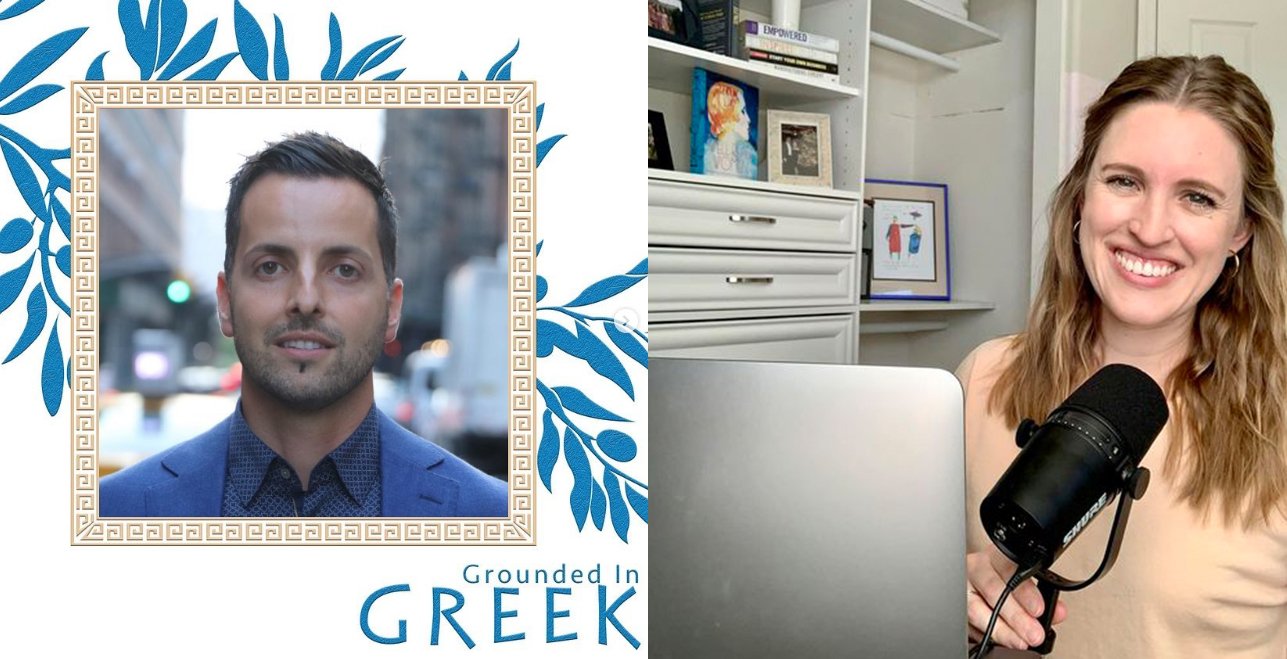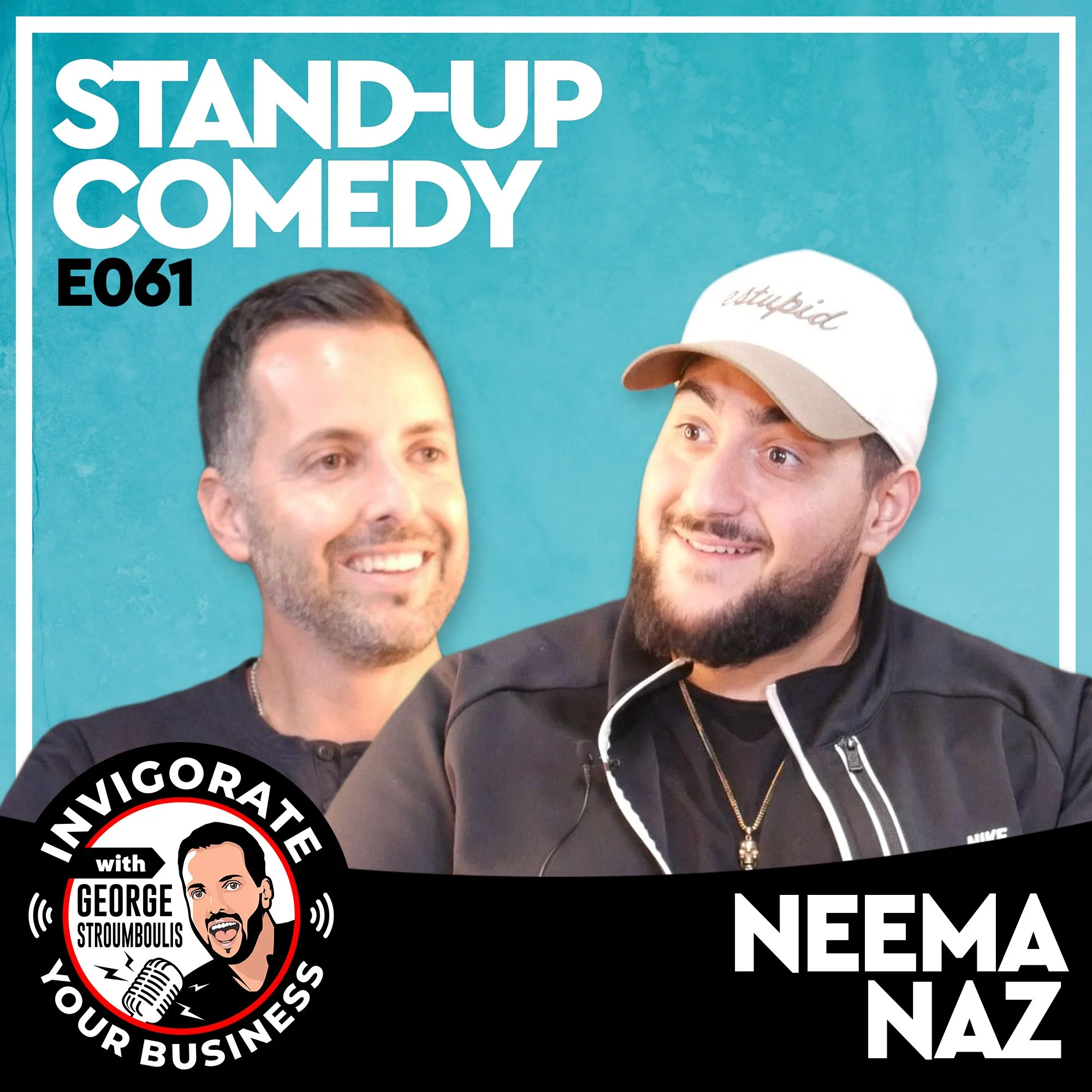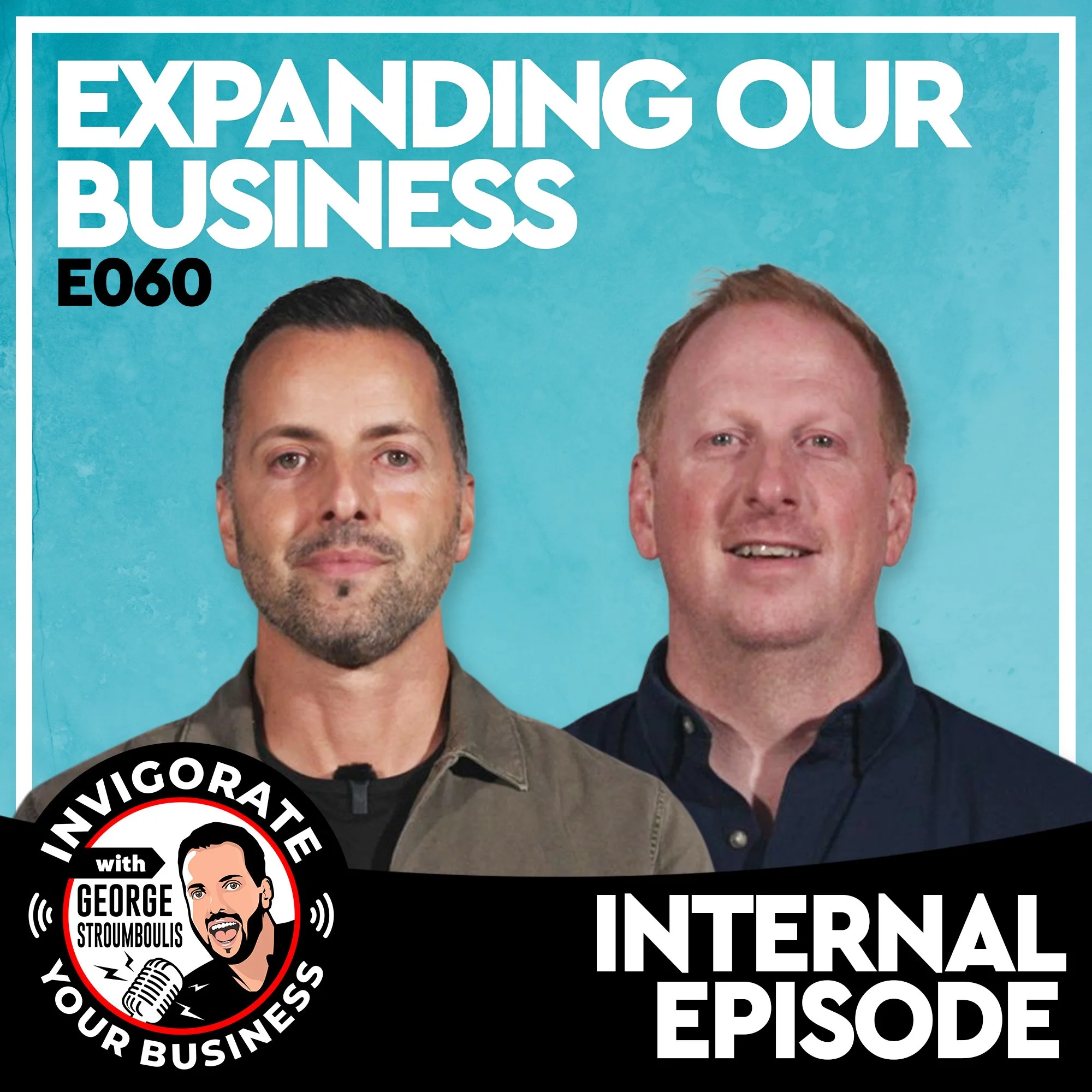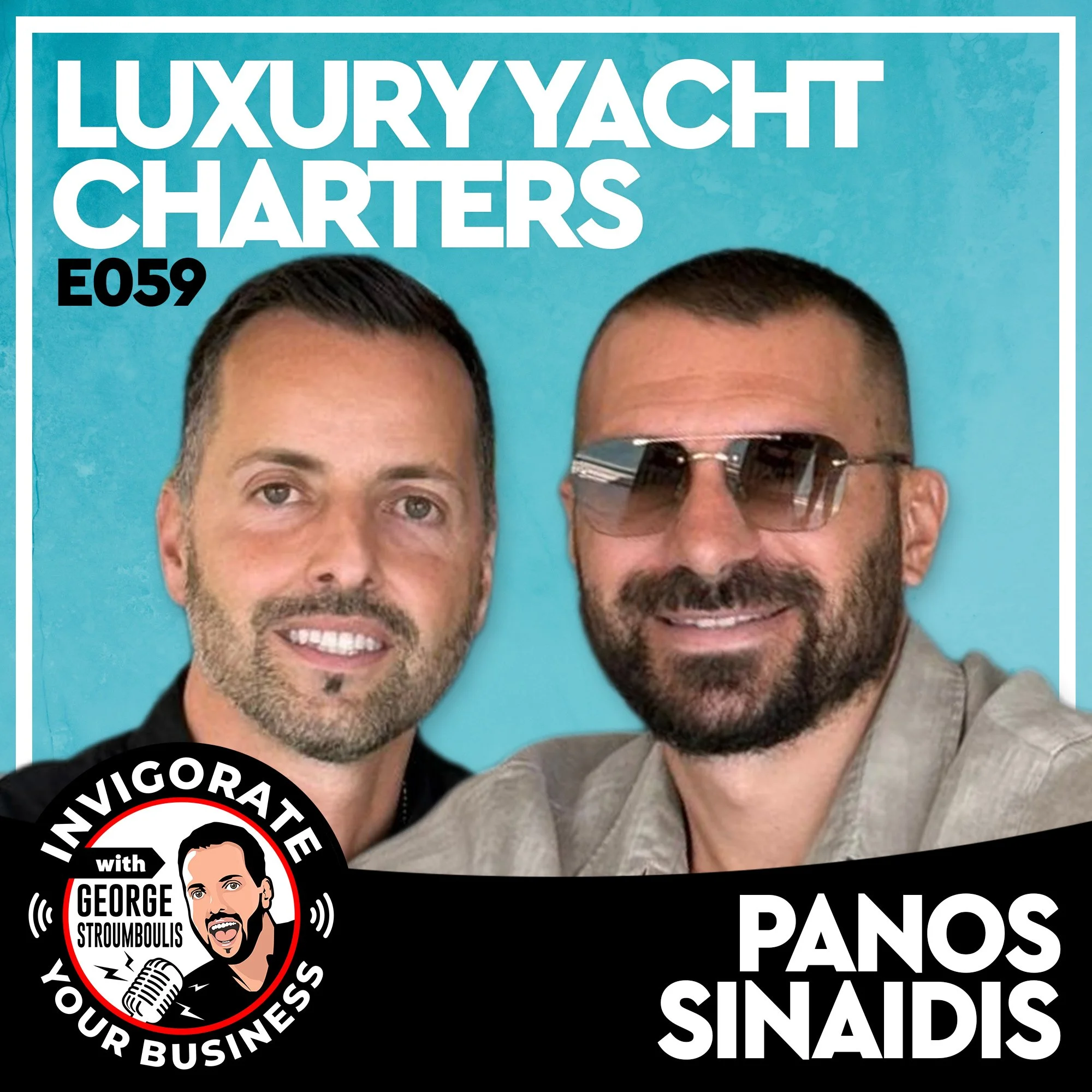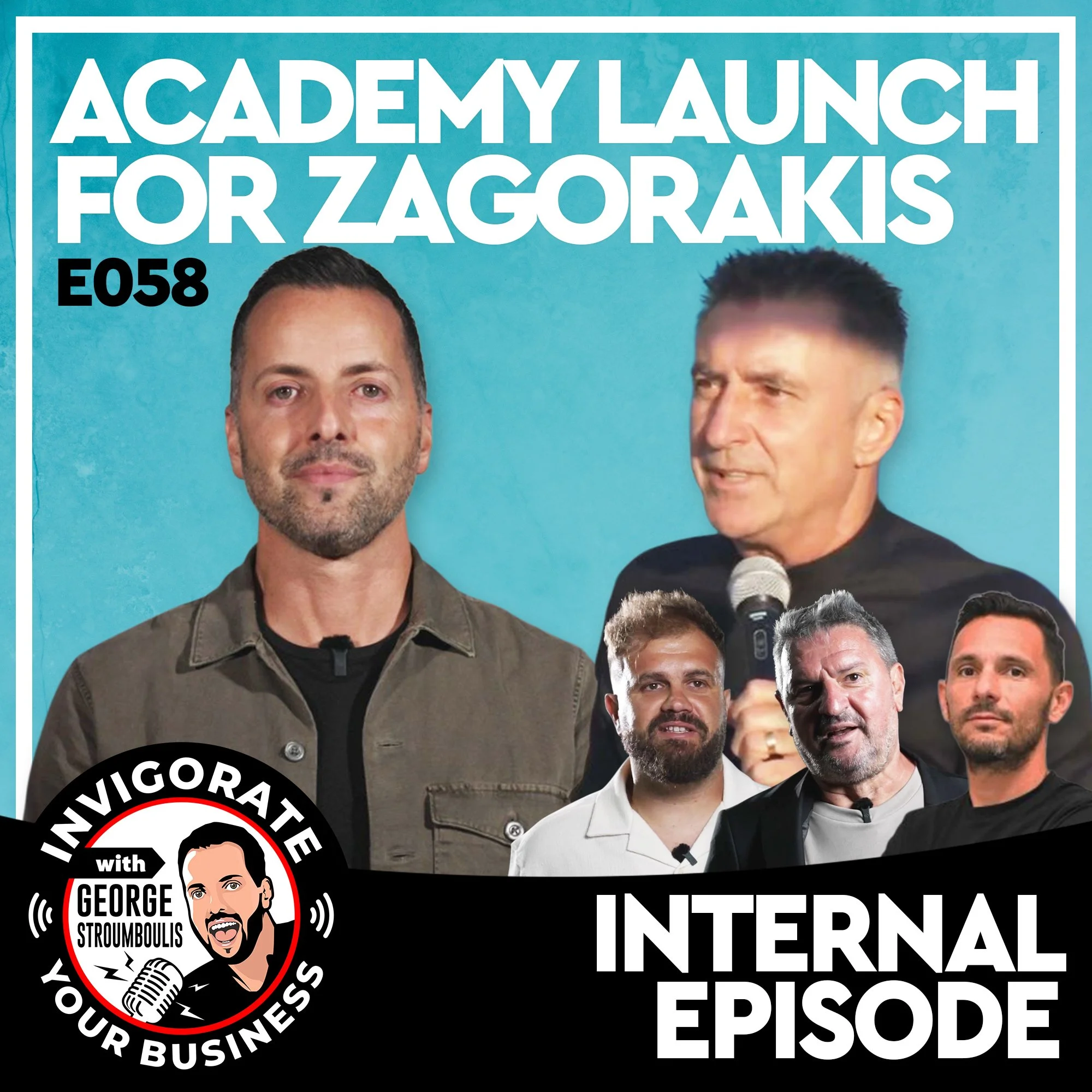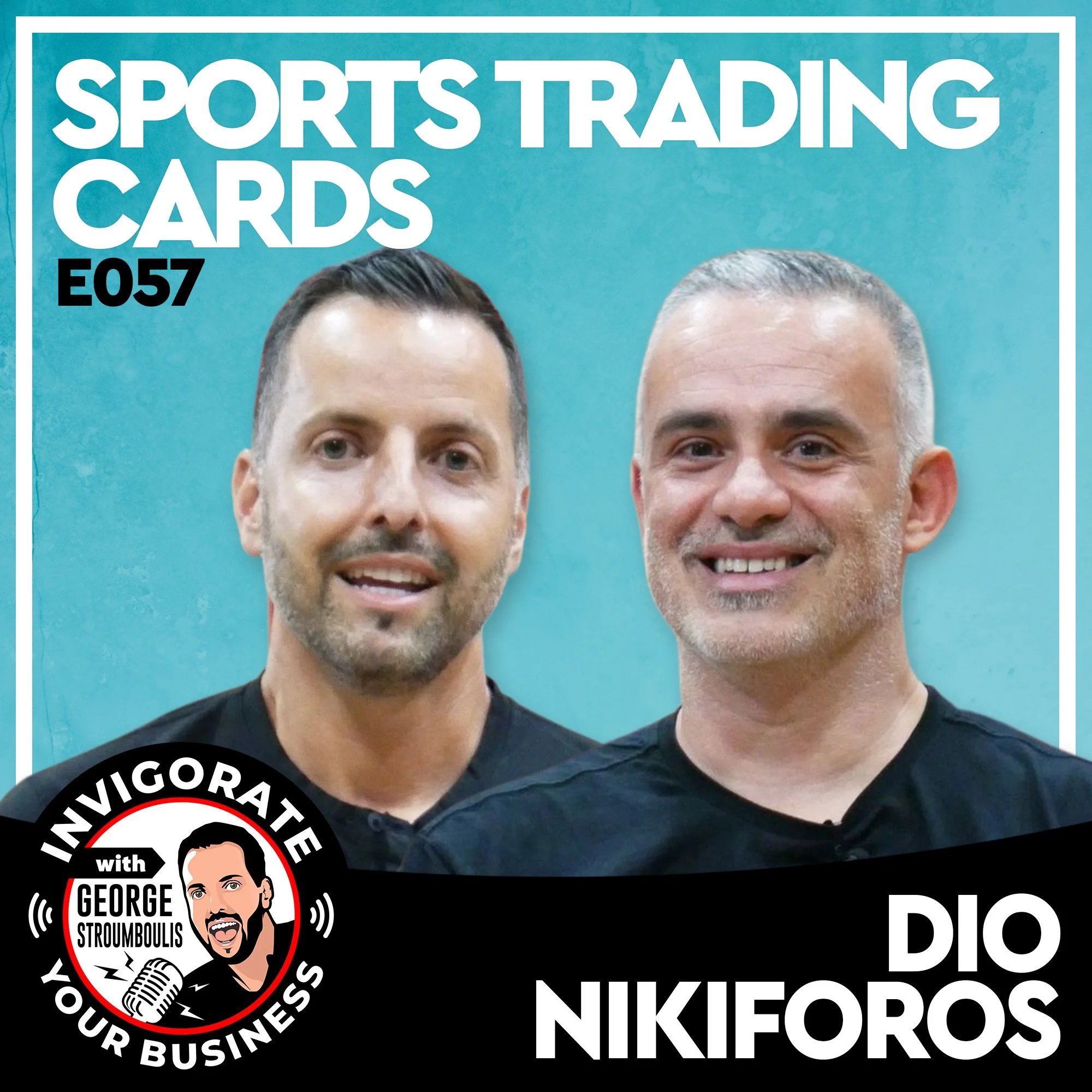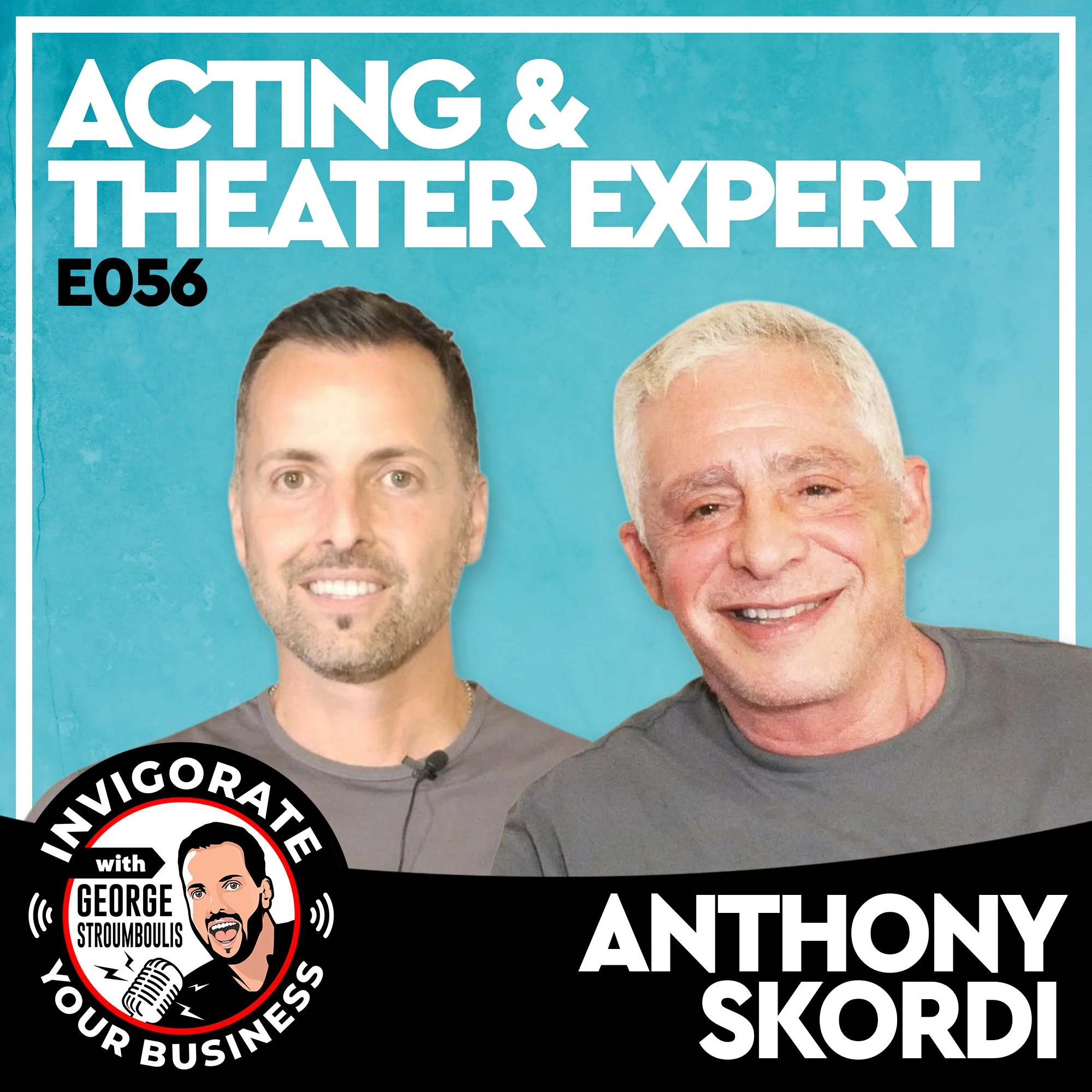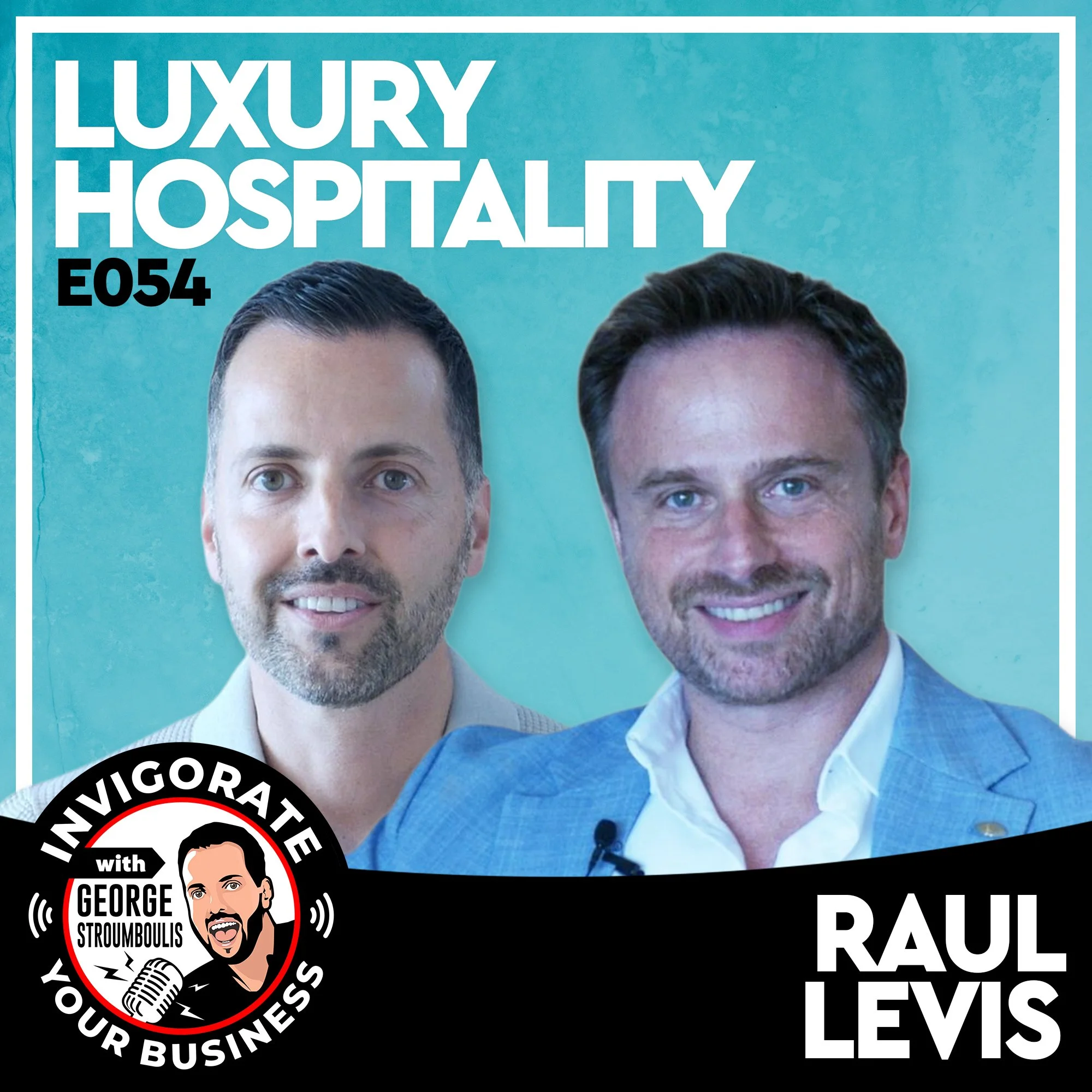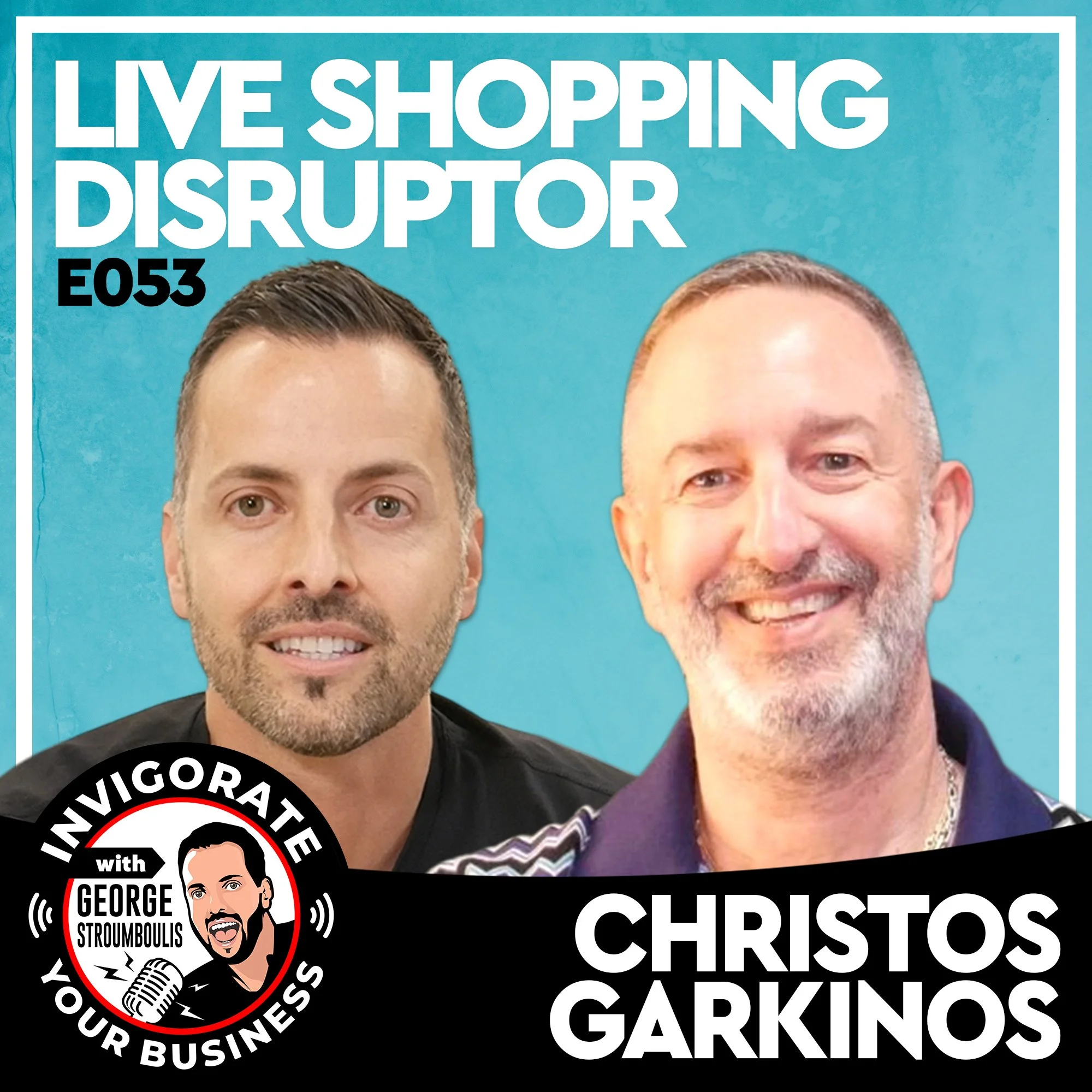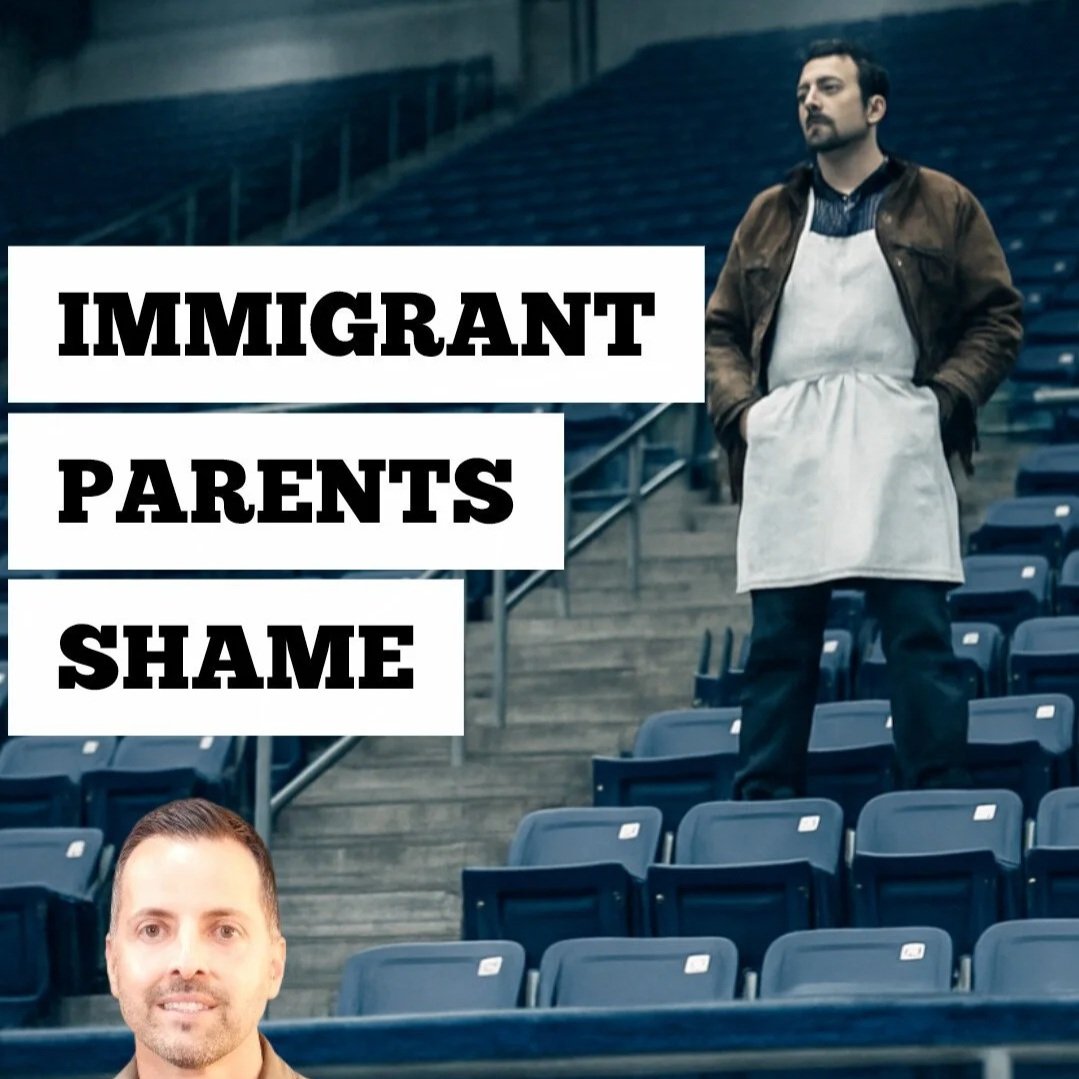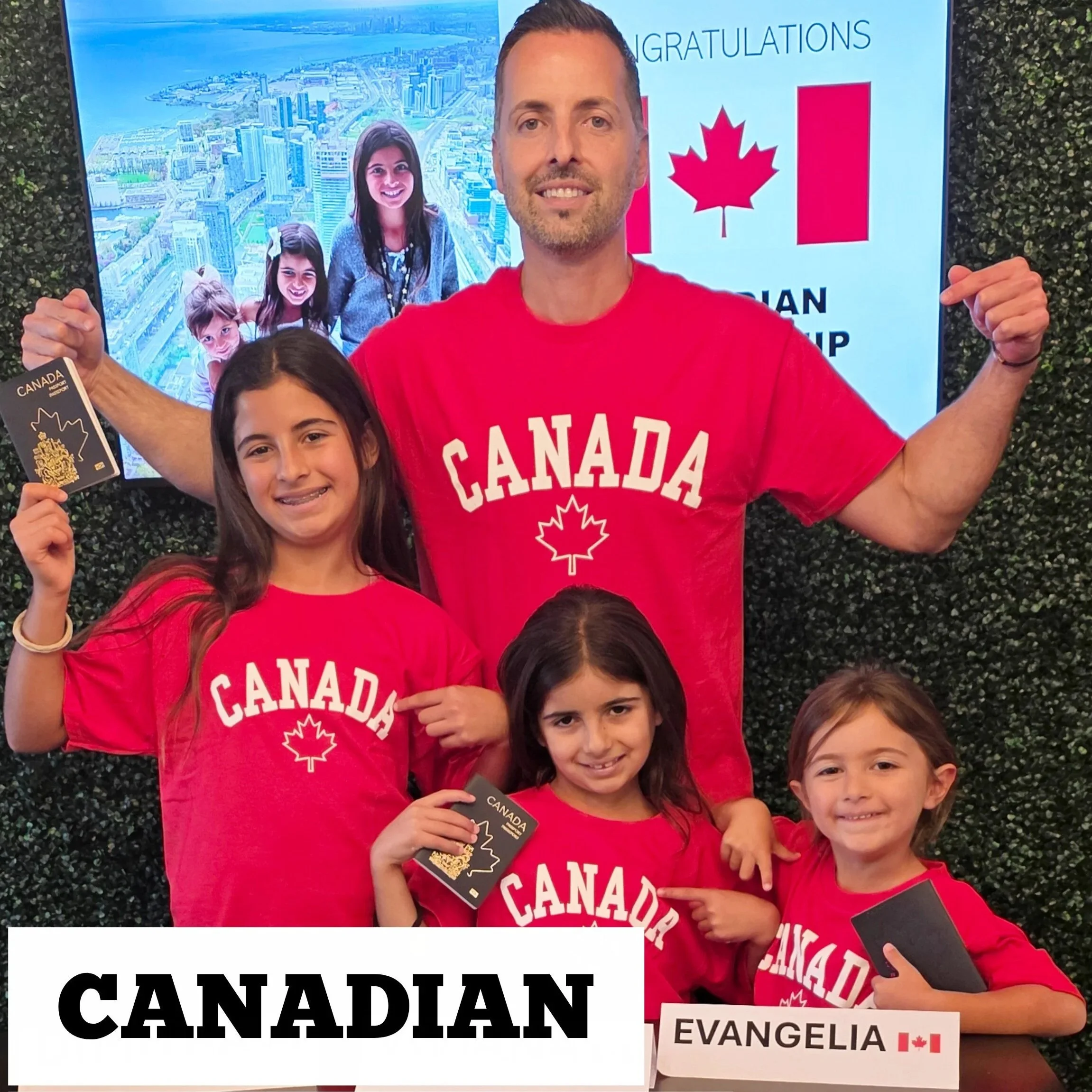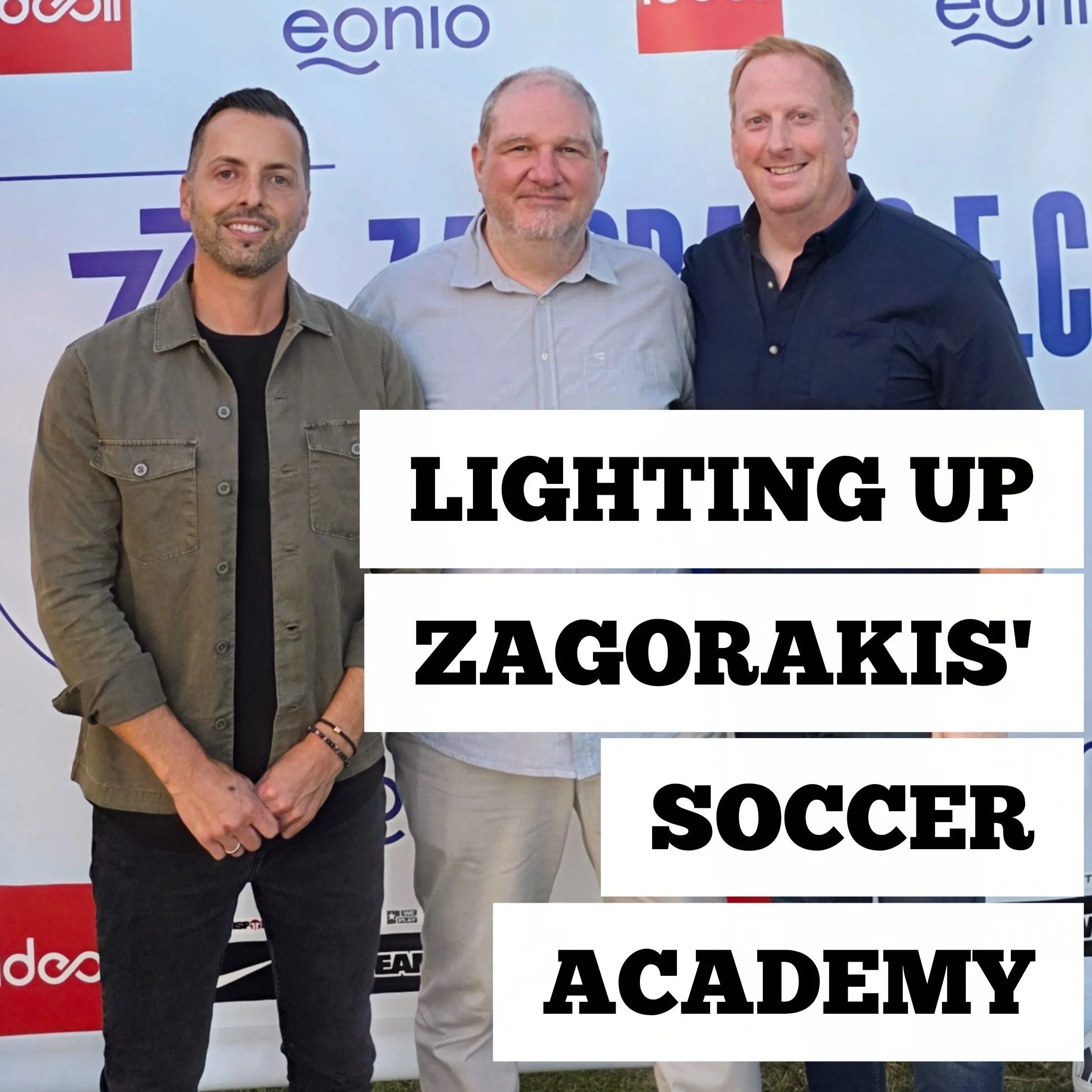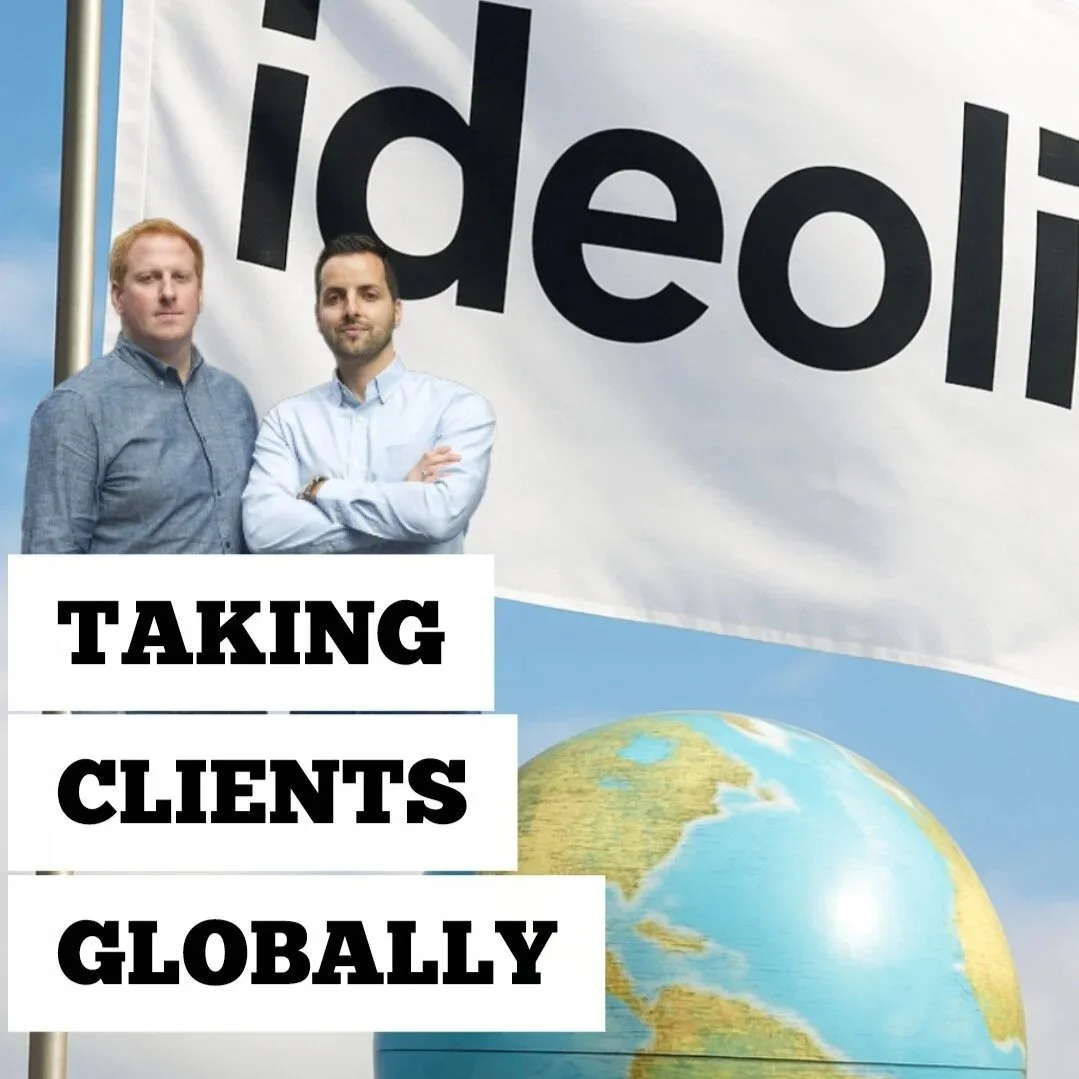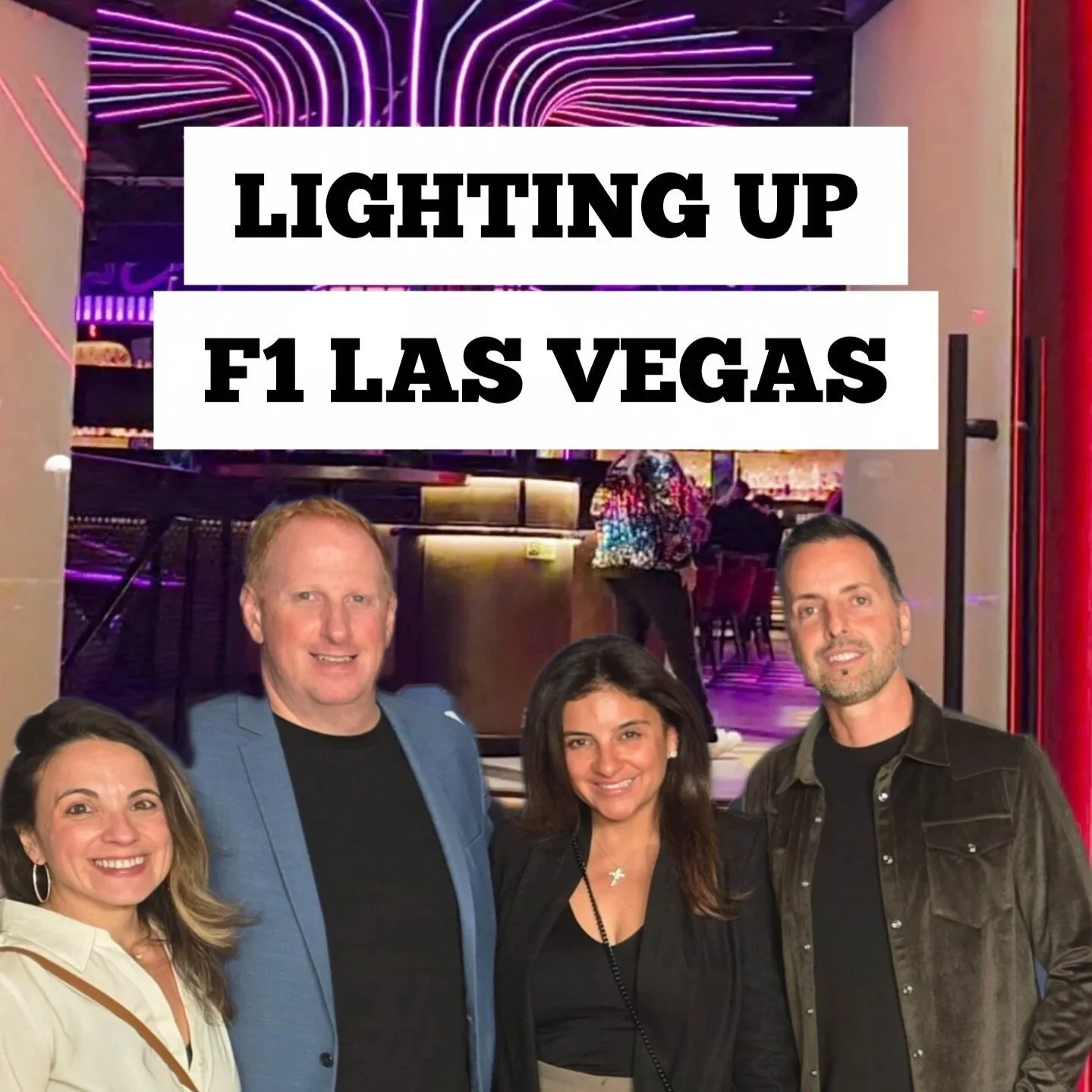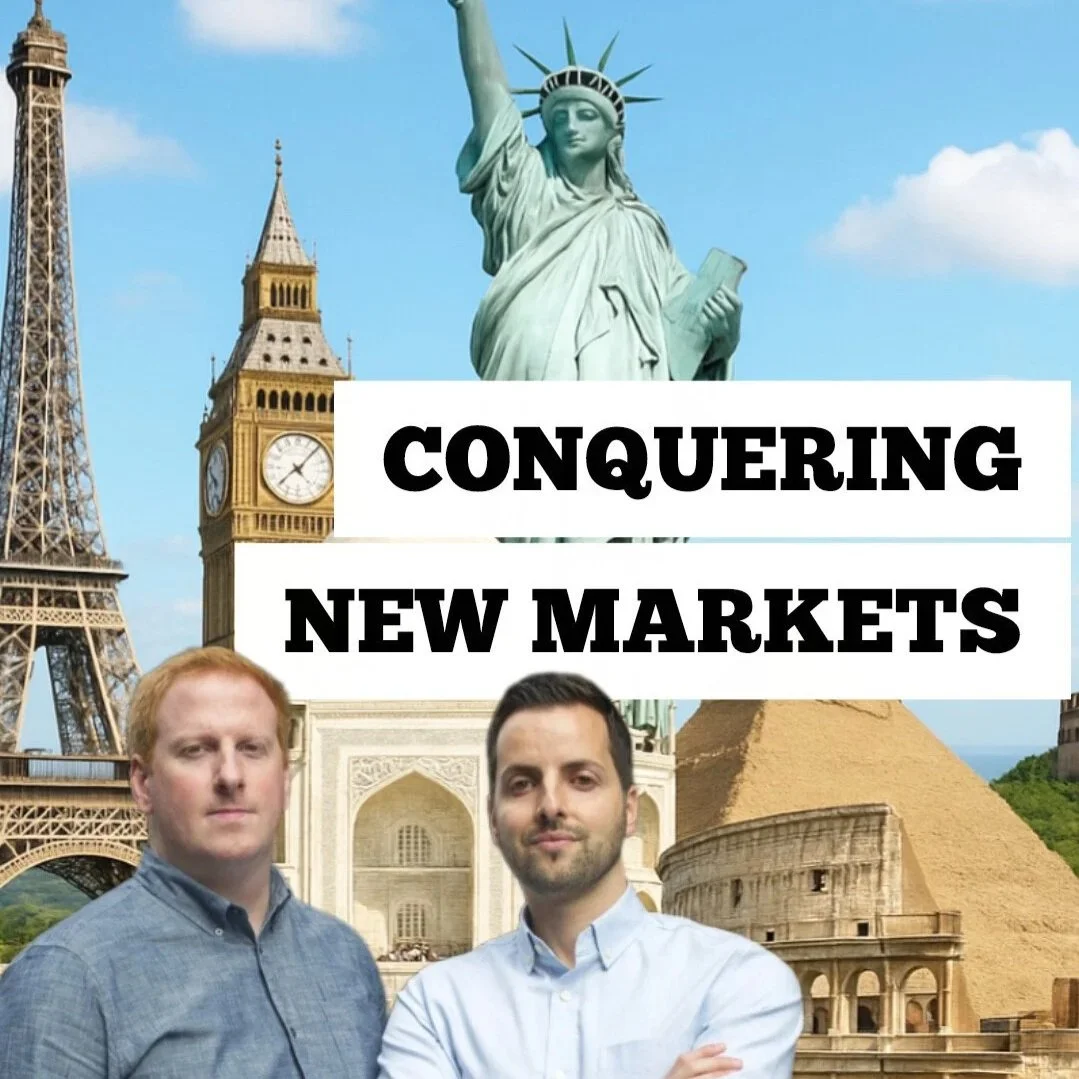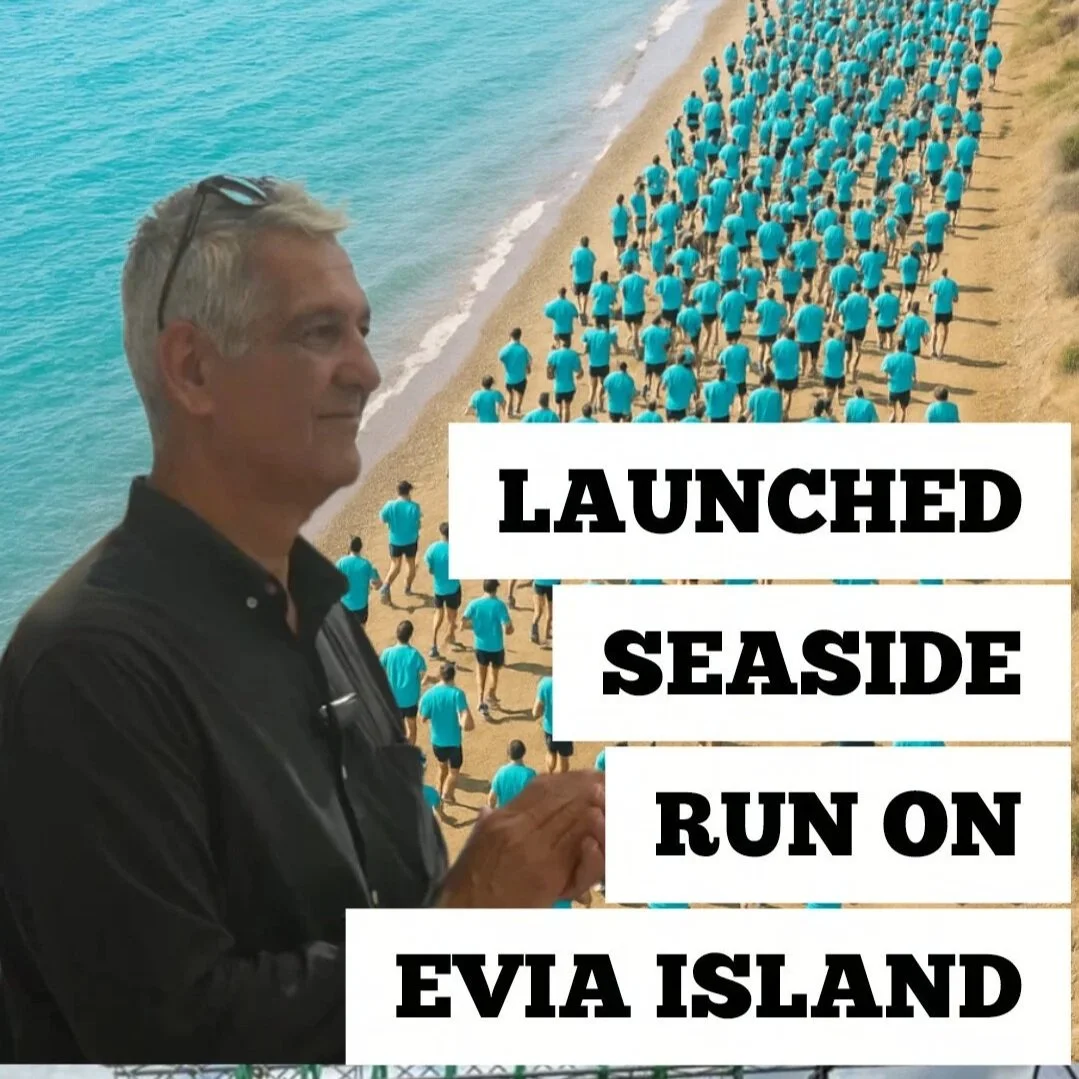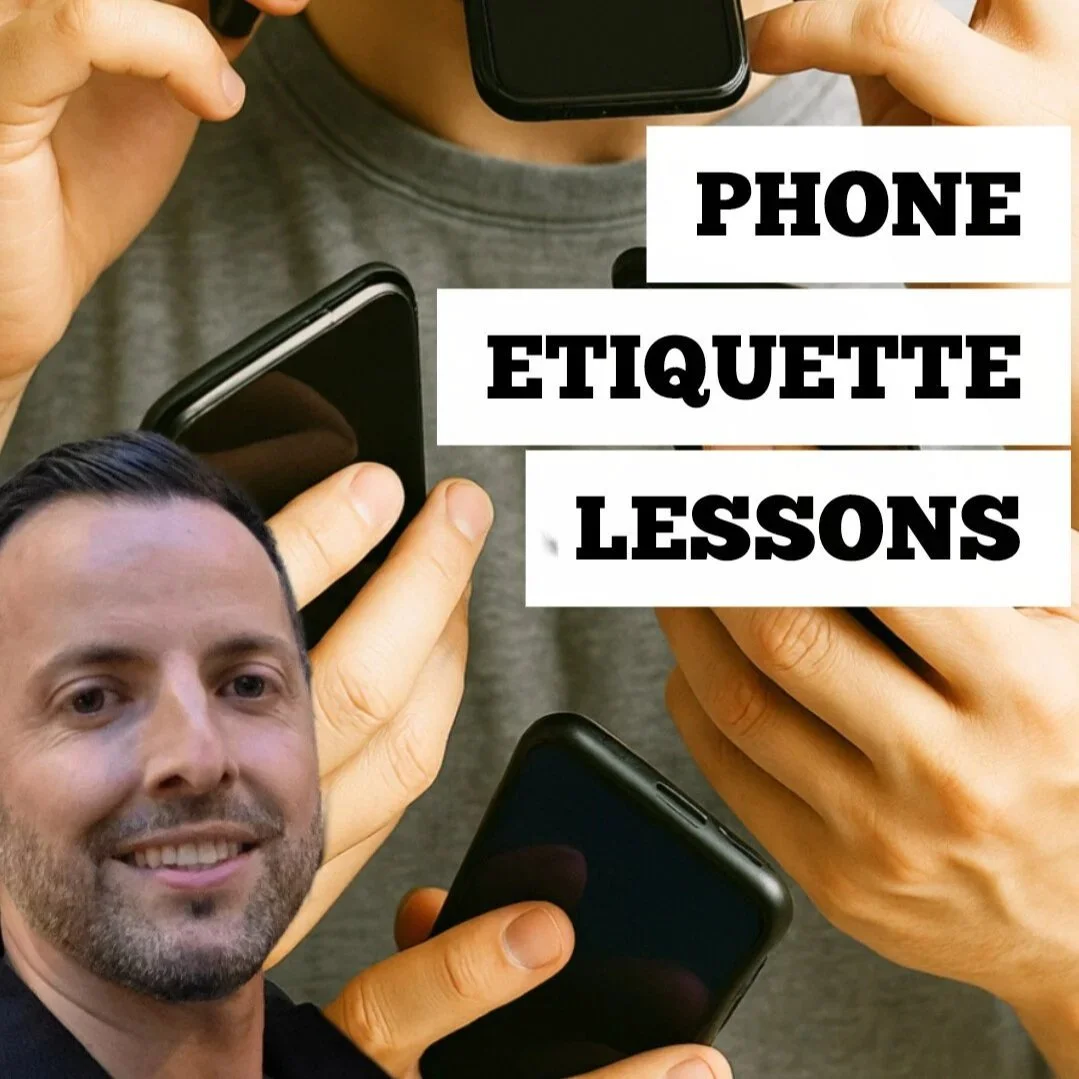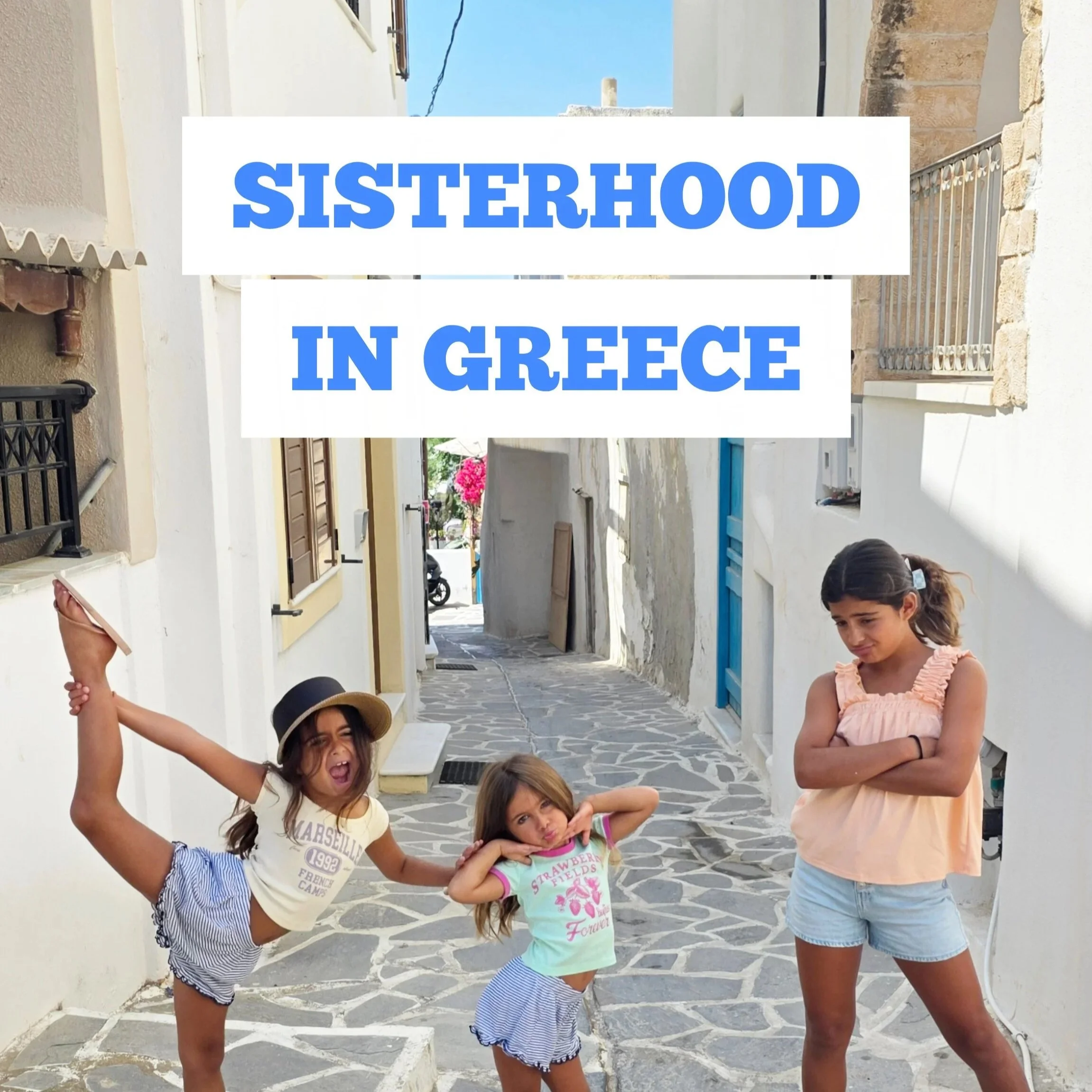LISTEN TO MY INTERVIEW AS A GUEST ON THE 'GROUNDED IN GREEK' PODCAST
Listen to this episode of the Grounded in Greek Podcast where Brigette Morgan interviews me.
Brigette (Scobas) Morgan of the Grounded in Greek Podcast interviewed me for their show - Grounded in Ideolipsis with George Stroumboulis.
New episode out with @georgestroumboulis, the co-founder of a custom lighting company, @ideoligroup and the podcast host of “Invigorate Your Business with George Stroumboulis.” We talk podcasting, starting a business, the lighting industry, and what embarrassed us growing up that we now think is beautiful.
Greeks share stories of the people and experiences that have grounded them in who they are today. Join Brigette on this journey to learn more about the Greek heritage and to find shared meaning in the stories told, whether you're Greek or not. Have a listen above or via the links provided. Listen to this episode on all streaming platforms: Apple Podcast, Spotify Podcast, Google Podcast, Amazon Music.
“Growing up, there were things that embarrassed me as a child about my culture and my family. Now I look back, and those are the things that make me so proud of my upbringing.”
Follow him on his IG here: @GeorgeStroumboulis
His Website: www.stroumboulis.com
Other Links: https://linktr.ee/Stroumboulis
His Company: IG @ideoligroup, https://ideoli.com
His Podcast: https://www.stroumboulis.com/podcast
On Apple Podcasts: https://apple.co/3LV69IM
READ THE FULL TRANSCRIPT BELOW:
Grounded in Ideolipsis with George Stroumboulis
Brigette: So, the beginning of this episode is a little staticky, which is ironic since there are two podcasters with solid microphones on it; myself and my guest, George Stroumboulis. It's like when engineers are set to give a live demo and the keyway site just doesn't load. It's just funny, but I had a lot of fun talking to another podcaster and like me, podcasting isn't George's full-time job. So, we talk other stuff like how he co-founded a custom lighting business, ideoli and the company's name is rooted in a Greek word, which we chat about and we also talk about our culture and growing up Greek and the importance of sitting down with people to learn stories and other opinions. You can find out more on my Instagram ‘Grounded in Greek’ and on his accounts, Ideoli group for everything lighting, and George Stroumboulis for everything about his travels and his podcast titled ‘invigorate your business with George Stroumboulis. Enjoy.
Well, hi, George. I'm excited to have you. Is it weird being on the other side and being interviewed since you have your own podcast?
George: Yeah, I know. It's true. Anytime we could talk, it's a good thing, you know.
Brigette: Well, I'm really excited to have you here as a fellow podcaster because I feel like we both kind of started podcasting around the same time, I think last year, right?
George: Exactly.
Brigette: Yeah, you just got to lift everyone up, especially Greeks and I really like your podcast topic. I've listened to a couple so I want to get into that.
George: Thank you.
Brigette: But before I start, kind of what I do with everyone is just ask where you're right now and then where your family is from in Greece?
George: Absolutely. So, right now I'm sitting in Newport Beach. This is where I have my office, where we live and then from Greece background, so my mother is from Kalamata in Greece and I know we just found out we share some roots there and my father's from Evia, the island of Evia, which a lot of people don't really realize where it is, that it's actually connected. It's only an hour and a half drive from Athens but I'm a big proponent of advertising Evia to go there. It's the closest island that you can get to driving from Athens. Don't fact check me on that but I'm pretty sure that's true.
Brigette: Okay.
George: It shouldn’t be wrong.
Brigette: Yeah, there you go. I can add a fact check at the end. I really want to take that back and ask my dad or ask my cousins that are still in Kalamata if they know your family because who knows, everyone I feel like is somehow related or connected in some ways.
George: So, one degree of separation for sure, right?
Brigette: Yeah, exactly. And especially, now that you're in Newport Beach, there's too many similarities. I think there's something there.
George: There's something, absolutely. You know, all three of my daughters were born here. It's a cool place. You know, I've been living here seven years and I'm still trying to get used to it. Having lived in New York City for almost 15 years and being from Canada, this has been probably the hardest adjustment of just, even culturally it's still in the United States, people are different here. The way things operate, it's different. Not saying bad, not saying amazing, it's just different but again, it's a good place to be in.
Brigette: So, were you in New York, born and raised in New York then went to Canada then back or is it opposite?
George: So, I was born Toronto and raised in Niagara Falls Canada, Fort Erie, small town outside of Niagara. And then when I went to University in Canada, I transferred and went to France and did a study abroad program. So, I studied in France, had the most amazing time, met a lot of my lifelong buddies to this day, nearly 20 plus years later and then my first job, career job out of University was in Ireland. So, I moved to Belfast, Ireland and lived there for a couple years. They transferred me to New York to open up a new office at the time and that's how I ended up staying in the states and typical story, my mother's like, you know, come close to home, be close to us, like Ma, just give me a couple years and I'll be back in Toronto. 20 years later, still here, still not happy but its okay, it's life.
Brigette: Do you think she'd ever move down to where you are?
George: Yeah, especially now with the three granddaughters, seven, four and one. Yes, obviously, COVID has made things challenging with travel but it seems with everything easing up right now, yeah, my parents would love to be down here and just split their time. And I would love it too selfishly like she cooks like a machine. And again, I'm not saying it from a maid standpoint but she's your typical Greek mother like just wants to breakfast, lunch, dinner, prepare, cook. It's just a beautiful thing, you know, and the older I get, I appreciate it because they take so much pride in making sure that their family is just taken care of. It's a beautiful thing.
Brigette: Does she send packages of food or cookies done? That's what I miss for my Yaya, the best cookies. It's hard.
George: It's the best. So, fun fact. I'm a mama's boy. I think 99.9% of all Greek boys are. When I was living in New York City, I used to fly home to visit them and she would prepare a suitcase of frozen pre-packaged meals. So, she would have like the moussaka, the pasta, the stew, the spanakopita, frozen package so I would literally bring a suitcase home and that thing would last me three months. I've just, oh what am I eating tonight? Like at first, I was like embarrassed, now I'm like no, that's amazing. Like, I wish I had that now.
Brigette: Yeah, same. I know. Isn't that funny when we're younger? I got embarrassed sometimes
George: What would embarrass you? Like, what was something, growing up where you're like oh my God?
Brigette: Well, something more like event based that comes to mind. It's like I didn't like that no one celebrated Easter the same time I celebrated it and I never understood that, you know, driving so far to go to church because I don't know, inevitably, we always lived far from our church. We never were very convenient. We located and I think as like a kid though, you're always embarrassed but like my Yaya would always like kiss me and tell me to put on socks and then kiss all my friends and I'm like, ah don't do that, like they're not comfortable being kissed but it's still really sweet and looking back, it's like I would probably do the same thing.
George: 100%. Yeah, when you look back, you're like those are things like once that generation's gone, we don't have that, right? Especially, this generation of Greeks, it's different. Let me tell you really quick. I remember to this day, I was grade three and we owned a restaurant family business, growing up typical, my sister and I worked at it but I remember the one day I forgot my lunch and my dad, he was just a hard worker. He's a great guy. He shows us up to my school with his apron on still from the kitchen at the restaurant, knocks on the door and he's holding like the brown paper bag with the lunch and I remember teacher opens the door and he's just sitting there in his apron and he's like, hurry up like I got to get back to the restaurant, it's lunch hour. And I remember I just wanted to like hide in my seat of just, that's my dad, he's in an apron, he's at the school like so embarrassed but in his world, it's like my kid needs food. Here we go. And then when I look back, you know, the older I get, I'm like it's just beautiful. I was embarrassed for the wrong things at the time. Right? When you're a kid, you can't really explain it.
Brigette: Yeah, couldn't agree more. Okay. So, you had a family business but then you wanted to try your own thing, so what did you go to college for and then what was that company that you worked with, and is it related to your business?
George: Yeah. Great question. So, I grew up in the family restaurant business and even though it was the typical, you know, most Greeks like off the boat, you get in the restaurant business, it doesn't matter if you were in Canada, the States, Australia, South Africa, Greeks and restaurants are synonymous, right? So, we were no different but growing up by nine years old, ten years old, I'm throwing fries in the deep fryer and I'm prepping and I'm doing stuff that a nine year old Canadian boy should not be doing in their age, right? But again, the older you realize, I was learning the economics of buying bacon better and produce better and all this stuff that really opened up your eyes just from a business standpoint, so by the time I was like 14-15, I would literally send my parents away and they would go for a week vacation down south somewhere and I would manage the restaurant as a very young teenager and with my sister as well. So, it opened up the eyes and then my dad was always pushing to be an entrepreneur, whatever you want, I don't want you in the restaurant. Go get your education, University. So, I studied business administration marketing and then I did international business in France as well and then after there, my first job at a university was with an executive leadership consulting firm. So, what they did was they would go into Fortune 1000 companies and they would train their executive leadership team to be better leaders, how to know, what type of leader you were to prove and I was 23-24 at the time and this was just like a service industry and it was very abstract to me and at the time, it just seemed like your unicorn type of leader. It just seemed like a lot of bullshit but as I would see the owner and how he would manage, it would command these rooms of, you know, Executives at Reuters headquarters in Times Square and I was able to latch along and I was the marketing guy, like you would really see how people would react and it opened my eyes to a whole new world of just executive leadership. So, from there, they moved me to New York. I launched their State's office with another colleague. So, it was just a great experience being in my mid-20s to be able to do that, to have the trust to bring this Irish firm here and then from there, just looking through the market. I ended up getting in the lighting world, distribution world from a marketing business development standpoint. So, that was my first job in New York City. And the funny thing is I joined that company and literally the next day, they brought everyone down to the warehouse and said they were just acquired and I'm like, well, what does that mean, right? So, it was just a lot of experiences early on, like on my own, I had no family, no friends living in New York or in the states. I was rooted in Canada and just trying to figure it out. It was exciting and then that's how I got into the lighting world.
Brigette: Okay. Wow, that's quite the path but I listened to a lot of podcasts and I feel like it's kind of similar to yours on background on how entrepreneurs get to where they are but I listen to the one on NPR, how I built this.
George: Amazing show.
Brigette: Yeah. And it's kind of like a mix of, what does he say at the end, like skill and luck? And it feels like you have that same mix kind of everything falling into place. So, what stood out as missing in that lighting industry that you wanted to take into your own company that you founded and then can you remind me when you founded that company?
George: Yeah. So, the company that I own right now, co-founded with my business partner. Right now, we've had this company for eight years. We launched it about eight years ago. It's called Ideoli group. I-d-e-o-l-i. Reason why I'm spelling it out is we're thinking like, you know, what name do we want? It's all about branding and marketing and we're really good at our methodology on how we create lighting products, right? Like, that's something we've mastered. Now, we need a really good brand and we were sitting there and sitting there and I remember in my studio apartment in New York, Chris Hartswick is my business partner. We would just brainstorm on. You know, what's the best type of brand? What does it represent? And we ended up coming across the word idiolipsis, which means obsession. And it could be taken as a negative word in Greek, like obsessive but we took the root Ideoli, six letters or less. We wanted to make sure the domain was available. So, we're rooted with being obsessive about our clients, being obsessive about the products that we create. So, we landed on that name and we built the business. Before that, the company that got acquired, the president at the time, you know, him and I had a great relationship. I had a lot of energy and all this stuff and it was like, Hey, I'm going to start an LED lighting company, do you want to come and join and be a partner and everything? And I was now late 20s at the time, single, living in New York, like I have nothing to lose. You know, even if this fails like let's go. So, when we went into there, what was different about us? It was the Wild West when it came to LED lighting technology. Today, when everybody says LEDs, they're like yeah, you know, my light bulb could change 18 different colors from this app. This is where we are today. 10-12-15 years ago, in this country, it was not a common technology. In China, they were doing color facade buildings years before us but here, it was very late in adapting and everyone at their mother was offering LED products, rebranding it from China and just creating a bunch of crap. What we did, we had a brilliant man who created like the world's first LED screw-in lamp that was actively cooled. So, there was a fan in there, not trying to board the audience here but there was a fan in there and then early on, we had brands like Lulu lemon and Puma and Adidas and Abercrombie using our fixtures across all their retail stores. So, we had a great run. We ended up getting acquired by public on the New York Stock Exchange, great chapter in our life. And then from there, we ended up, you know, me and my partner were now working for a publicly traded company. I'm not that guy, right? Like, there's a few things I know. I'm not that guy, he wasn't that guy. We decided, you know, let's start our own thing and we know we can do things better, faster. We have a lot of good connections in the industry, where we can bring instant value, not because we're nice guys or we're friendly, we could chug a beer. It's like we can really bring you value, we could save you money and we could do national and global roll-ups. So, that's where we started Ideoli and fast forward today, we're located in six different countries with offices. Our products are installed in over 30 countries around the world and we're working with brands like Teslas, the Microsoft, the Weworks of the world. So, we've gotten in there while still maintaining that startup vibe even eight years later. So, like that's one thing I'm really proud of, just having that culture.
Brigette: Yeah, that's awesome. I couldn't agree more and I've gone to different companies, I really like the smaller, more contained. You get to know everybody better and communicate and collaborate a lot easier when it's in that mindset and kind of younger. Okay.
George: Absolutely.
Brigette: That's a good background. And you're also not just in all those places but we were talking earlier that your lights were in Curb Your Enthusiasm, which my husband and I are obsessed with that show. I know you really like that show too.
George: Started with Seinfeld. I feel like if you were a Seinfeld fan, by default you're going to love Curb Your Enthusiasm. Again, big fan of the show. So, we work with a lot of commercial buildings and we get our lighting products in there and I remember one of the episodes on curb. They were walking down the hallway of the Netflix headquarters. You have Larry walking with, what's his buddy's name?
Brigette: Is it his agents?
George: His agent, yes. I put you on the spot, yeah. And they're walking and it was just cool seeing our lighting above that as they're walking. Small part but we were just like so geeked out over. It was pretty cool.
Brigette: Yeah, that's awesome. And one last question about the lighting company before I go into the podcasting. So, what made you want to focus on more of the commercial buildings or larger clients than homes or other people and then tied to that? Does it make it easier or harder? I guess, I don't really know the difference.
George: No, that's great. So, all my relationships and our development and everything is on a national account basis. So, when we're looking at this and even today, we'll have friends, family, my wife's friends, mothers, dog, you know, I was like, oh I need a chandelier for my kitchen, that same conversation to try to develop a chandelier for that one kitchen, that same effort from my team can still target a VP of construction at a Hilton Hotels, right? And it's the same amount of work to design, to engineer, to prototype to get exactly what they need. But guess what? The mother is buying one and then she's going to have sticker shock on all that custom effort to buy one chandelier, where the VP of construction or design or the CFO will look at and say, wow, economies of scale. We got here, let's roll this out to 200 locations. So, early on, and again, not a bad business model going after residential and people who will pay the high price but that's not our model. We've always focused on national account clients and I've been able, and COVID and the pandemic was really a testament to this. We were able to maintain our team and still be able to keep everyone busy and not have to downsize to a great deal because we have such a team being able to support the key people versus hiring up and trying to support and to everyone in the industry. So, yeah, that's where we focus on that. And then what we really do is we're able to design and bring to market anything lighting related and quickly, right? So, we'll get a package of a new hotel going up or a restaurant chain, whatever it may be and within there, we could look at all the fixtures and we work with the designers, what would you change? And it's literally like Mr. Potato head on, oh I would love if this was this and this was that and we do it conceptually, then prototype 3D print, seeing and then we roll it out into mass production or small scale. So, that kind of covers what we're doing.
Brigette: Yeah, that's so cool. And you right now are in the warehouse or where are you now? Because you're in the company.
George: So, our headquarters are New York City. I actually have a red-eye flight tonight and I'm there for 22 hours and back. We do that basically every other week just to be home with the kids, right. It's a cram it all in. I'm based in Newport Beach. We have a warehouse here, offices. This is where we do a lot of the sales and marketing and then we just launched our office in Athens, Greece and that's supporting our European efforts and we're really excited about that footprint. We have an office in Argentina. Buenos Aires, Argentina. Brilliant designers, good energy like good people and obviously, we have our offices in China, where we manufacture most of our products and then Vietnam as well. So, we're Global and basically, we have 24/7 coverage, six days a week around the clock because a lot of our clients are outside of the country. So, there's always a team addressing, whether it's design, whether it's engineering, whether it's customer service, project management, freight. There's always that hands-on coverage by design.
Brigette: Well, it sounds like you've really built up quite the business. Good for you. That's awesome.
George: Appreciate that. Yeah, it's a grind but it’s fun.
Brigette: Yeah. Well, also looking at your Instagram, it looks like you like travel. So, I guess, good thing you like to do that or else this would all be very painful.
George: And it gets harder with the kids too, right. Like I want to be there. You know, pre-pandemic, I would literally do day trips to like Shanghai and back, like a day trip to Jakarta and back. Just because you can maximize, if you land somewhere and you have a 10 hour day ahead of you, you can meet whoever you need to meet or see whatever factory you need to see and get out of there, you abuse the crap out of your body but the point is that I was obsessed. In one year, I did 300,000 flown miles around the world and I only had something like 20 Hotel nights, which is insane. But again, it's that passion. We love what we're doing and it's not even about the lighting per se. It's about when you see a finished environment, when you walk in there and it's that whole ambiance, whether it's a house or a restaurant or the latest executive building, you know, it's exciting.
Brigette: So, if you're doing all that, how the heck did you have time to start a podcast? And why?
George: Good question. I'm still trying to answer that, to be honest. You know what? It was basically first season. It was a series of six episodes and I'm like, you know what? I had heard once, obviously never give up. You're going to start some finished and I'm like, I need a finish line so if I'm not going to do this again, what does this look like? So, in my mind, I've heard 12 episodes, I'm like that's a big commitment, I'm extremely busy as everyone is. So, I'm like let me do six episodes to test it out, to see if I'm horrible at it, just to see what it is and then what I'm passionate about is it's not about the business and the dollars and what cars you're driving. It doesn't matter what your business is, right? Like the cleaning person, cleaning this warehouse every two weeks is running their own business. The executive who has to decide on turnover and all this, they're running a business and everything in between, right? Everyone has a story and we can always learn. And early on, my parents always taught, you treat the floor sweeper the same as the owner. So, I've kind of brought that to this and within that 30-45-60 minute conversation, we can always learn something from someone or something may resonate more or reinforce something, right? And that's why I just wanted to do this, like it's an hour discussion shooting the shit, we'll get into some business, we'll talk about some random stuff and in the end, it'll live in the universe. Maybe there'll be some content that people could get and I've enjoyed it, like getting through the first round and then looking at the next round, I'm like okay, I finished that. So, for me, it wasn't a failure. So, now looking at the next set, it's just let's do it and see where it goes but it's a grind, right, because you're on an island when you do it. It's all on you, meaning like what are your success metrics? Are there success metrics or is just getting an episode live successful? So, things you always play with as you go in your head but overall, it's just been super fun.
Brigette: Yeah, I'm constantly moving my success metrics as I keep learning more and more but I totally agree that the start of it was so hard and I think I also listened to a podcast about podcasting and I'm like okay, it feels like a lot but also doable and then when you get into it, for me and I don't know about you but, so this is my favorite part obviously. The editing is brutal. I don't know. What do you use for editing and do you do everything yourself end to end?
George: No. So, that's the one thing with like work and life and running this company and family and kids and all that. I've always had to position myself with like just good editor, right. So, you know, I have a little studio here but the one thing I try to do is the person ones when possible. It's very hard, right, because if you live in a remote place, it's very hard physically to have people fly in. We're not Joe Rogan here and people are specifically flying in for us and sitting down. So, I have a really good editor that basically give all the files and kind of coach them on this. I don't even want to edit it unless something is explicit that would get red flagged or the interviewee is asking me like, oh my God, I shouldn't have said that, please remove it, add some music, add the intro, the script will do itself and I try to keep it very limited on editing. Good or bad, and again, I'm by no means an expert but I like learning something new. This is new, right? So, every day we're learning and then let me ask you, so why are you moving your success metrics, like just constantly evaluating and seeing, like what's driving that?
Brigette: Yeah, evaluating. So, last year it was all about just launching, honestly getting it off the ground, just trying my best to do it and I'm doing the editing myself and like you, I'm keeping everything the same unless someone reaches out and it's like, oh, you know, I've misspoke on this or is it okay, take this out. You know, I'm not trying to be a salacious podcast and getting something out like this is pretty casual. It's where all people just get to know each other. So, yeah, I'll do the editing as well. So, the first part was just getting it out, learning garage band, that's what I use and then my husband on the side sees a lawyer, corporate lawyer but then on the side, his focus is music production. So, he has some plugins that I use to try to help post editing or sound editing. This whole thing is just a pain in the ass to edit. So, that was kind of the first step, was just launching it and then now as I learn more about like what my audience is like or as I get more episodes out, I think it's also trying to learn to grow social media and engage with my audience more and seeing more ways to collaborate with them and connect with them and so that's also something I'm trying to learn and move that benchmark up.
George: Absolutely. And let me ask you in general. So, it's Greek based, right, so the roots, the foundation. How do you go about trying to find the right guest right now, like when you look at it? And I'm asking because I go through the same thing too, like what makes sense, what would people be interested in versus just getting an episode up and keeping it going? Like the consistency thing is really key here.
Brigette: Yeah. I want to be consistent and I just want to make the backgrounds different from people I've interviewed in the past, like when I started, I kind of outlined, okay this person covers medical field, this person's entrepreneurial and started her own business and so I kind of like go through and see if I've checked every box, also making sure I have presbytera, father and that side and then I have a cook and so it's kind of a mix of that and then I don't know about you but it's a lot of reaching out to people. Some people you're shocked when they respond back. You're like, heck yeah, all right. I'd love to interview them. And then some people never get back to you and then some people reach out. And I have really enjoyed all the different versions of the people that I've reached out to, that have been recommended and that have asked if they could share their stories.
George: Amazing. And I know we could collaborate after this on just, from the government side and Greeks and just seeing like what makes sense.
Brigette: That's what I mean.
George: It's great.
George: The politician or someone in the government is one I'm missing.
George: Yeah, absolutely. They could be slithery so we just got to be careful.
Brigette: How about you? How do you reach out or find people?
George: Right now, it's just been core contacts. People I interact with, got some cool ones coming up in the next season, if you will, hopefully trying to get like a professional NHL player and just talking about the business side of that and then even looking at stuff like what would interest me now as a newer father. So, I mean not so new, seven years in. what about NCAA Sports and division one athletes here and trying to get an athlete on and talking about that because parents get obsessive about my kids going D1 and you know, looking at some other stuff and it's a challenge and I try to do it in person so it does limit how it goes but it's fun. You're going to get nine no's or yeah, just later, which is a no. But if you just focus on those ones and just keep building.
Brigette: Yeah. And I've found and I don't know if you have as well that sometimes people that I'm unsure about or not sure how I guess the conversation will go or if it will resonate with people, it ends up really resonating with people. And I think that's why I'm trying to be right now as inclusive of a lot of different Industries and people because it helps also me understand what are people interested in and then also fundamentally I believe everyone should take the time to understand different opinions and backgrounds if they're opposite of your own and if you have trouble doing that then you very much then need to listen to those episodes. I just think that's important. So, that's why I'm trying to have it be full breath of people.
George: Absolutely. And you nailed something right there. Like, I know growing up, there was always the Greek table at my dad's restaurant or in our house and it was seven, eight, nine Greeks. Every other night, we get together, friends, family go to church together, Easter together but every night, there was slamming fists on the table and yelling at this guy and this and that and see you tomorrow, I'll be like all right, Angela, we'll see you tomorrow, have a good night. You're friends. That doesn't exist now. At least the way I see the world, that doesn't exist anymore. If you think differently than me then you are in this bucket and we can no longer communicate and that's so not the core of what our DNA is, right? Growing up in democracy and having an opinion and debating and still being cool at the end of the day and that to me is very scary, like we can have different opinions and its okay. So, that's just one thing. The older I get, I start realizing especially now it's very polarizing, not just in this country worldwide, not trying to be on a soapbox right now but I don't know what the solution is to that. Try to surround yourself with like-minded people but I don't think that's a long-term answer as well.
Brigette: Yeah, it's tricky business that's why I think if all of us can do our part to try to get different viewpoints out or be able to have discussions, I think that's all we can do at the moment and tell like you said, I guess those slimy politicians try to figure out something, some actions to take but that's really cool that you're able to interview people in person. I wish I could do that but you're not only interviewing Greeks, you're interviewing all entrepreneurs in probably the LA, Orange County area.
George: Yeah, or people traveling in and I used to travel a lot so some episodes in Athens. I go there every other month and New York. So, I'm trying to line up some stuff. Again, this isn't a full-time thing and I'm not doing this to generate revenue or anything. It's hey, do something that's cool that you like, the rest will follow. Like, that's the whole approach to this and I enjoy it and obviously, you do and that's why we're doing it.
Brigette: Yeah, exactly. It would be great to get revenue from it but we got to build.
George: Got to build it.
Brigette: Absolutely. So, do you carry your microphone with you when you travel?
George: No. Usually, like if I'm in Athens, we have an office there so my team would set up like just some basic stuff but next step is, what is a mobile kit that you could just pop up two or three microphones, a couple cameras and go but it's an effort, like that's a full-time position right there just to have someone do that. So, typically, looking at doing stuff and finding like a local editor videographer that can do a setup like that and support it and just do that. As it starts building like that's what I would like to do because I'm already traveling there for work, why not piggyback and talk to Mrs. X or Mr. X and try to get an interview.
Brigette: Yeah, keep learning. That's awesome. And I might go to you for tips with the video side of things. That's another thing, piggybacking off of what I said with social media. I need to get more movement on the page, more video but it's a lot of work between my full-time job and your job sounds crazy.
George: It's crazy.
Brigette: It's a lot but we're doing our best.
George: But you know what? You nailed one thing. Just launching in of its own is a success, a major success. Understanding the platforms, just getting it out there and exposing yourself, right, and you know, ninety percent of the people be haters like why is he or is why is she and it's like who cares? You expose yourself, get it out there, that's the hardest thing of just doing that. And then you're on your Island and it's just like, you know, we need some people to pat you on the back be like, oh that was cool, this is cool and most of the comments may be negative or indirectly and just filter it out and keep going. You know, we only have so much time on this planet. Who cares what the other person thinks? Like, literally I have a sign over my office door that says ‘you're going to die’ and it's a reminder of we're all going to expire. There's a family picture wall and it's like, hey, make every day count. I'm not trying to be a motivational speaker but it's a good reminder, who cares? As long as you're not hurting anyone, just do what you got to do.
Brigette: Couldn't agree more. That's perfectly said. I'll look at the analytics and be like, oh shoot, I lost a follower but then I go back and I have a message in from a guest I've talked to before and it's just a beautiful connection that we've built and we keep in touch like, you know what? That is the whole point of all this anyway.
George: Absolutely.
Brigette: Cool. Well, that's awesome. I'm so happy for you and your podcast and your success in your business and I don't know if there's anything else you wanted to add before I asked the last question I asked my guests.
George: No, I just wish you continued success and I appreciate the time we had and I think you're doing a stellar job. So, just keep rocking.
Brigette: Thanks. Yeah, you too. And I'll probably see you around in Newport or we'll have to do a family tree to figure out if we're somehow related.
George: Exactly. And we'll do it at Hope Hospital, right?
Brigette: Yeah, exactly. Well, the last question is what do you think has grounded you and who you are today? Say, the most from growing up Greek or just in general?
George: It's definitely just the culture. My culture and the reinforcement of the culture and being grounded like, you know, the story I said earlier about my dad showing up in his apron and being embarrassed. Well, guess what? He was just making sure to put enough food on the table and grinding, right? Like you see it differently growing up and being embarrassed when I was 10 years old wearing the fustanella in Greek dancing and having my hockey team, having a tournament next door and coming over and seeing me dance and being embarrassed. Looking back, its culture, right? You know, my mom's saying reinforcing certain things and embarrassing. It comes down to the culture. I'm not saying the Greek culture by any means is superior to another culture but I'm saying I only grew up in the Greek culture and it's very important to keep those traits and traditions and everything going and that's really grounded me in the hard work aspect as well. Like seeing what my parents did and do and up until a couple years ago, still work 12-hour days when they didn't have to, like how can I just sit there and be lazy or not try to produce? It's incredible. And I feel like that's just a common theme in general with our culture.
Brigette: So, fact check. Evia is a 55 minute drive from Athens for all those that were wondering. And you can go check out George's Instagram, Ideoli group for everything lighting related, that's i-d-e-o-l-i and then if you want to learn more about George and his podcast, you can find him under George Stroumboulis and you should follow that so you can be informed on when his next season comes out. And as always, if you know a Greek with a good story or you yourself have something you want to share, please contact me at groundedingreek@gmail.com or find me on social media under Grounded in Greek and if you enjoyed listening, please write and review. Thanks all.

